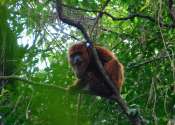Researchers solve puzzle of origin and formation of specialized body plan in flatfishes
The colonization of the seafloor is one of the most important events in evolutionary history, leading to an explosive radiation and large-scale morphological diversification of marine phyla. Flatfishes are one of the most ...









